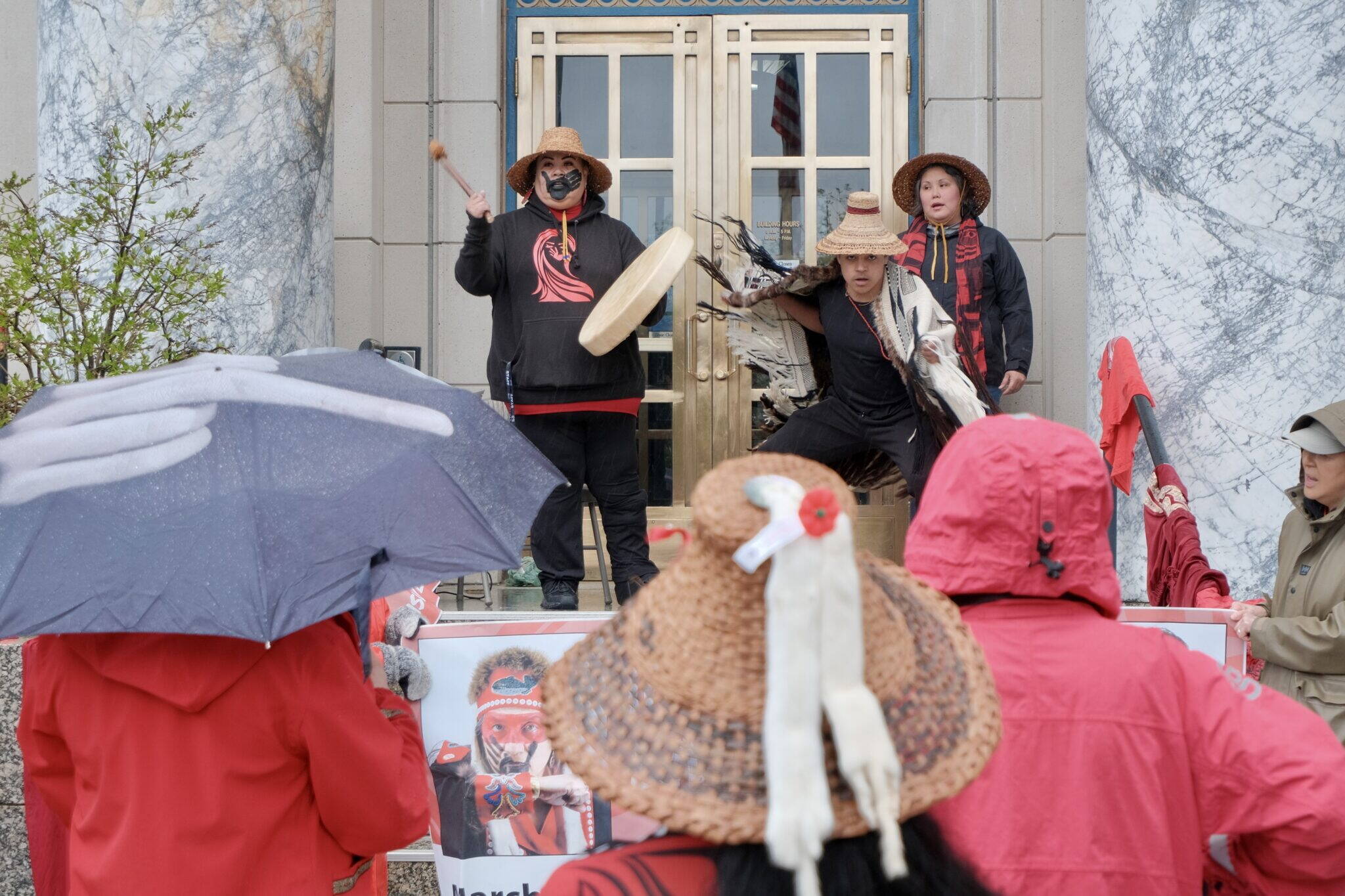Lawmakers added protections to address the crisis of missing and murdered Indigenous people in Alaska last week, a move celebrated by activists who have devoted years to a campaign for equity.
Senate Bill 151 passed with a combined 57-1 vote. Rep. David Eastman, R-Wasilla, was the sole vote against; Sens. Shelley Hughes, R-Palmer, and Mike Shower, R-Wasilla, were excused from the Senate vote.
Under the new law, the state must employ two full-time, dedicated MMIP investigators to pursue cold cases and must include cultural training in police officer training. It also establishes a Missing and Murdered Indigenous Persons Review Commission and requires that state public safety officials consult with tribes for a statewide needs assessment.
Charlene Aqpik Apok, director of Data for Indigenous Justice, a nonprofit database that tracks missing and murdered Indigenous people in Alaska, remembers when it was hard to get lawmakers to agree to a meeting about the issue of violence against Alaska Native people, let alone influence policy. So when the Alaska Senate passed legislation aimed at doing just that, Apok felt the significance when their 9-year-old son said, “Oh my god, you’re about to pass a law!”
“It’s almost unbelievable and I feel a range of emotions. It’s such a huge thing to be celebrated,” Apok said. “It also is just a starting point, we have so much more to do. But I’m so excited to celebrate it. And I’m ready to see what else we can get done.”
Apok lost close family members to violence — mother, auntie and cousin — which makes the work personal. They said it was important to see so much Indigenous-led collaboration.
Sen. Donny Olson, D-Golovin, who is Inupiaq, proposed Senate Bill 151 to address the crisis of missing and murdered Indigenous people that affects communities across the state. Coincidentally, he and Apok are from the same village of fewer than 200 people.
Apok is quick to note that tribal leaders, people who gave testimony and other other advocacy groups contributed to making the legislation possible.
Joel Jackson, president of the Organized Village of Kake, was one of the testifiers. He said the move is a long time coming. “Our Indigenous communities have been long overlooked for too long,” he said. “It’s time to be treated equally.”
Jackson was among advocates that came to the Capitol to advocate for changes intended to make law enforcement and justice equitable for Alaska Native communities.
Rep. CJ McCormick, D-Bethel, sponsored the House companion bill and urged lawmakers to approve its passage.
“What this does is begin to answer many who have felt ignored and forgotten,” he said. “SB 151 makes meaningful efforts to bring our families home and to provide closure to many who have waited far too long for justice.”
Public Safety Commissioner James Cockrell advocated for the legislation and he said lawmakers should be proud of the direction the state is going in regards to making sure Alaska Native people have equal access to justice. He said the state has struggled with the issue for years and he is pleased by the commitment in law to support a council to address it.
“It spotlights the progress the state is making in recognizing the difficulties that Indigenous people have in this state,” he said.
The bill takes effect next January, but Cockrell said his department already has most of its new requirements in place. Cockrell currently has four MMIP investigators on staff, double what the new law requires, and is planning how to structure research for the report that will be due in a few years.
“I think my ultimate goal is that, whatever we set forth, that it will outlast me — and the next commissioner will have to continue the progress so it won’t go away,” he said of the new regulations. Even though the Department of Public Safety currently has more MMIP staff than the new law requires, Cockrell said it’s nice to know that there’s a minimum requirement.
“It will be there long after I leave this department, which is rewarding in itself,” he said.
• Claire Stremple is a reporter based in Juneau who got her start in public radio at KHNS in Haines, and then on the health and environment beat at KTOO in Juneau. This article originally appeared online at alaskabeacon.com. Alaska Beacon, an affiliate of States Newsroom, is an independent, nonpartisan news organization focused on connecting Alaskans to their state government.

